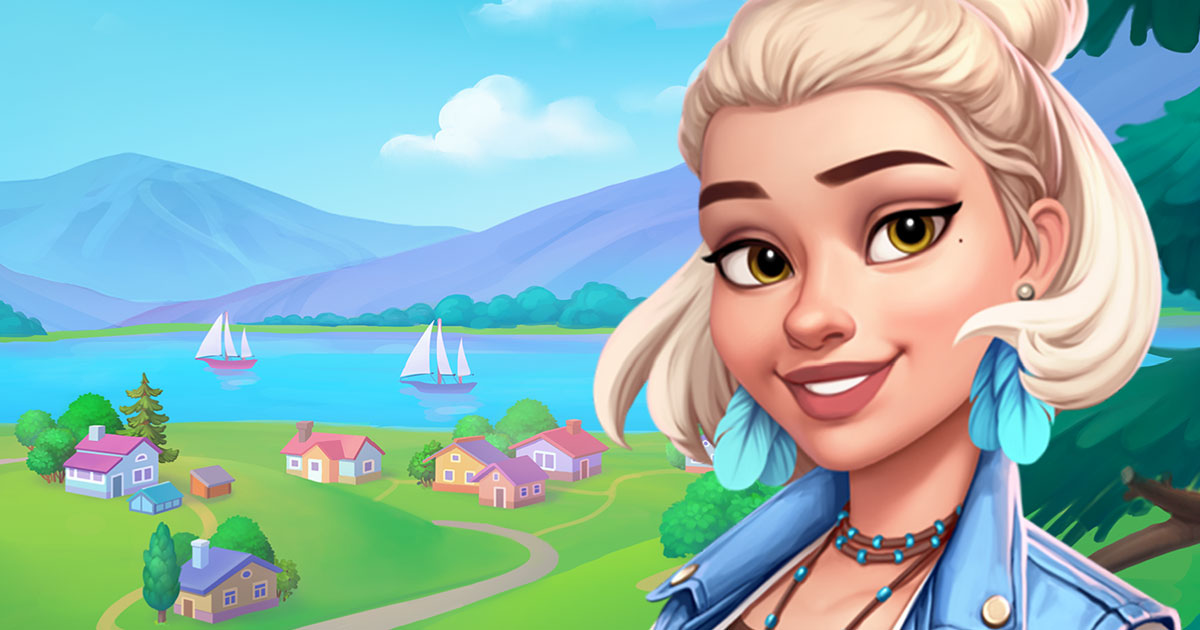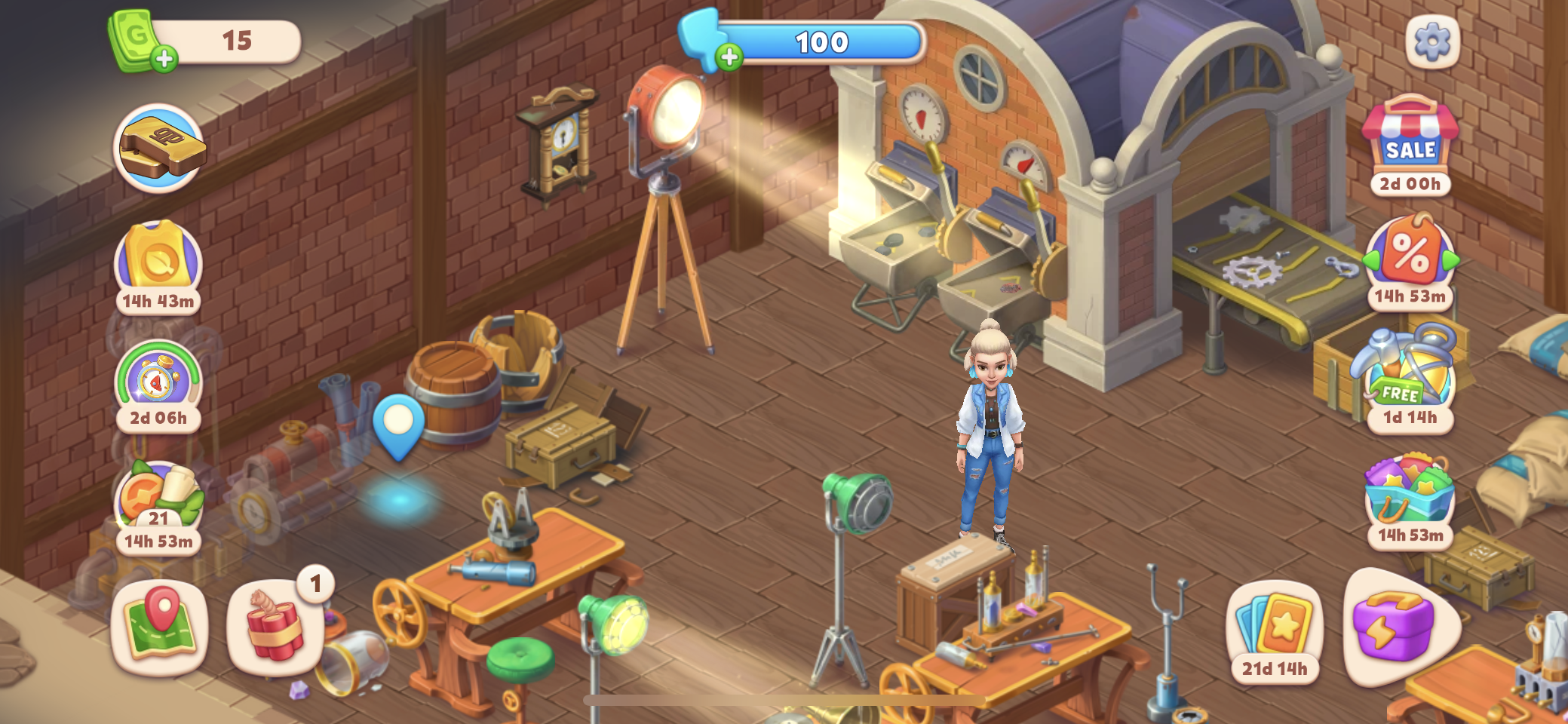Who is a Game Designer — A Column by Glera Games
We continue our series of publications where experts from gaming companies discuss their professions. The newest article in this series is about game designers. Two game designers from Glera Games, Natalia Sholina and Igor Petrov, share detailed insights into their profession.
Who is a Game Designer?
Natalia Sholina
A game designer is a specialist involved in developing a game across various aspects. These aspects can include:
- Concept;
- Game Content;
- Game Mechanics;
- Storyline;
- Characters;
- Levels;
- Balance;
- …and much more!
Synthesizing all these aspects, one can say that a game designer is responsible for ensuring the game is interesting, engaging, and meets player expectations.
The profession of a game designer is a creative and multifaceted field that combines art, design, and technical skills to create a captivating interactive product.
A game designer must possess systematic thinking, understand game mechanics and balance, know the market, understand player psychology, and adapt gameplay for different audiences. It's also important to have teamwork skills since the game creation process typically involves collaboration with other team members such as narrative designers, artists, animators, programmers, and sound engineers.
The experience of working on each game is unique, just like each game world. Among game designers I’ve met directors, economists, veterinarians, lawyers, teachers, and even a nuclear physicist.
Unexpectedly, any experience can become useful. For instance, I have a background in music and philology, which sometimes proves helpful when selecting music track references or writing documentation.
Igor Petrov
This is a specialist responsible for developing the game's concepts and mechanics—from inception to operation. To simplify, they define the rules and objectives for players, in line with the game’s vision and the tasks assigned to the game designer. Their main goal is to make each part of the game as interesting and engaging as possible.
What are the Responsibilities of a Game Designer?
Natalia Sholina
The responsibilities of a game designer can vary based on team size, game development stage, and game genre, as well as the focus area entrusted to the specialist. Here are some general tasks that can be highlighted:
- Concept Development: The game designer crafts the overall game/event/mechanic concept, defining its features, theme, plot, and goals, and presents the concept to producers and the team.
- Developing Game Mechanics: This task involves designing game mechanics — rules, interaction and management systems that determine how players interact with the game.
- Levels and Game World Structure: The game designer creates levels or the game world structure, defining player progression and content distribution.
- Characters and Behavior: They develop game characters, their characteristics, unique abilities, and behavior.
- Game Balancing and Tuning: The game designer is responsible for balancing the game and configuring the settings to ensure a fair and engaging gaming experience and a positive player experience.
- Understanding Key Analytics Metrics: It's important to form expectations for new games/mechanics/features, and after release, analyze whether they meet expectations, identifying possible changes to improve results.
- Testing, Feedback Collection, and Iteration: They participate in game testing, analyze feedback, and make changes to enhance gameplay.
- Writing GDDs (Game Design Documentation): The game designer creates technical documentation describing game mechanics, levels, characters, and other game aspects for the development team.
- Working with the Development Team: They work closely with artists, programmers, sound designers, and other specialists involved in implementing the game concept.
It's challenging to provide an exhaustive list of a game designer's responsibilities, as in reality they can be diverse and include tasks depending on the project's requirements. Each game and every game aspect is unique and encompasses numerous features to learn and master by interacting with the project. For example, you might join a new team and learn on your first day that you will now directly interact with code and configurations, even if you’ve never done so before. But typically, a great team helps you, and new experiences always expand your horizons.
Igor Petrov
The main responsibility is to develop game mechanics (from creating concept documents to operating the final feature). At each stage, the game designer must continually collaborate with all departments involved in the feature development. A game designer typically possesses broad but shallow knowledge in various areas of game development — game balance, level design, etc.
What Must a Game Designer Know to Perform Their Duties Well?
Natalia Sholina
The best answer would be "the more, the better!" It's vital not to stay idle, to be curious, to grow, to keep an eye on the ever-evolving market, to observe competitors, and to bring all the cool ideas that could diversify or change the approach, making the product even better.
An overview of necessary skills can be briefly summarized as follows:
- Understanding of game mechanics and genres and a good overview of the competitive market with its diversity and constant dynamics.
- Creativity and imagination, as well as the ability to formulate and present ideas to the team.
- Systematic thinking and analytical skills: it's important to be able to analyze the gaming experience, identify strong and weak points of the game, and understand the audience’s needs and preferences.
- Soft skills: a game designer’s work is always intertwined with interaction with other team members, so it's important to possess teamwork and communication skills, ideally creating a creative and inspiring environment where every participant understands their tasks, gets good feedback, and gains a pleasant experience from the collaborative effort.
- Basic technical knowledge. While I haven't encountered game designer-programmers, understanding the technical aspects of game development, such as game engines, programming languages, etc., can be very helpful, as we often need to "translate" ideas and concepts into technical language to clearly describe to specialists what is expected from the implementation of different game aspects.
- Understanding balance: depending on the project, a game designer might be directly involved in balance calculations, but even if that’s left to another specialist, it's important to grasp how to balance the game to ensure an engaging experience.
- The ability to listen and accept feedback: it’s important to be open to feedback and willing to make changes in the game. Also essential is the ability not to take feedback too personally, as one might develop strong attachments to the concept and its implementation during the work process.
- Knowledge of the target audience and player psychology: understanding player motivations and preferences helps in understanding how to "hook" the player.
- A desire and drive to grow and develop a product that doesn't stand still: the gaming market is dynamic, and competitors don't rest! A lively interest in surrounding events and a desire to evolve your game are crucial.
But, as with all other aspects, every experience and project is unique, so needs may vary greatly. Becoming a universal specialist is challenging, but it's important to listen to your heart and choose the direction that inspires you the most. Fortunately, there are indeed many options! And everyone loves to play.
Igor Petrov
A good game designer must know their basics—the fundamentals of game design, player psychology, be creative, and technically skilled. They should understand graphic design and have good analytical abilities. Additionally, I consider critical thinking and strong teamwork and communication skills crucial.
What Might a Game Designer’s Workday Look Like?
Natalia Sholina
Days can vary greatly, but some of them largely consist of meetings.
I have been working remotely for about 7 years, so all my meetings are held online in video-conference format, which does not affect the quality of communication with the team. Most are accustomed to seeing colleagues online and communicating via work chats and tasks. Meetings are needed to present and discuss concepts, synchronize visions, discuss expectations, and assess the results of changes we make to the game. Often, discussing any work question by voice is more effective than writing, so a game designer’s work involves many calls and heated discussions.
Besides meetings, time is required for documentation preparation, game setup, task assignment, providing feedback to specialists, mechanic testing, competitor monitoring, idea collection, and much more.
Planning and allocating time for various work aspects is crucial here to meet deadlines.
If we were to outline a typical day, it might be characterized as follows:
- Morning meeting and synchronization with the team where we discuss completed work results and plans for the day;
- Working on tasks (assignment, feedback provision);
- Preparing presentations and documentation;
- Setting game mechanics and testing results, making adjustments, task delegation to specialists;
- Scheduled meetings with producers and the team;
- All other tasks (sometimes they can be sudden and voluminous; dynamism is our everything!).
Igor Petrov
A game designer’s workday may start with a team meeting, discussing current and future tasks, developing concepts and prototypes, testing and analyzing game features, and discussing with the team hypotheses and proposals for improving the game.
Where Do Game Designers Usually Come From?
Natalia Sholina
There are so many options! Some start from scratch and find themselves in game design. Many transition from other fields within game development, having settled in a project. For example, I transitioned from Customer Support (player tech support). It's said that support and QA professionals make the best game designers because experience in these departments is beneficial for game development. Who knows? Maybe it’s true.
Igor Petrov
In the past, game designers came from various fields. I, for instance, used to be a financier. Recently, many reputable educational institutions are offering courses related to game design, and I’ve noticed that our ranks have started filling with certified game design specialists.
What is Necessary for Growth in This Field?
Natalia Sholina
I would highlight the following aspects (not exhaustive, but they resonate):
- Continuous self-development and market analysis: the gaming market is very dynamic and volatile, and only personal interest helps stay active, track trends, capture novelties, and implement ideas. Even the best game design courses won’t cover the full range of skills that a particular game designer might need for their work. It’s beneficial to listen to what artists talk about to provide good feedback when developing graphic objects, watch movies and read to find good solutions for the climax of a game event’s plot, play games and spot promising novelties, as this will help create games demanded on the market.
- Responsibility: a game designer is always the owner of the entrusted area, bearing responsibility for decisions and consequences. It's important to constantly monitor the product’s quality and share with the team if something needs to be changed or improved.
- Developing teamwork skills: a game designer's work is inextricably linked with team effort, so it’s crucial to effectively communicate and argue your point of view, clearly formulate tasks, be ready to discuss and change decisions if the situation requires it.
- The ability to accept feedback and learn from mistakes: one must always be prepared for this, even if it is quite challenging initially. All decisions are subjective, but the final product is formed through discussions and iterations. It is vital to listen to alternative opinions and weigh the arguments. Also, don't take mistakes to heart, as everyone errs (except those who do nothing), and in game design work, responsibility usually feels very strong.
Igor Petrov
Growing in this field requires constant development, teamwork skills, the ability to take responsibility, and a desire to follow industry trends.
What are the Growth Prospects in This Profession?
Natalia Sholina
Different growth directions are available for specialists:
- Vertical growth from Junior to Senior Game Designer — depending on the complexity of the tasks performed. Deeper specialization in the chosen area.
- Growth to the Leading Specialist position (Lead Game Designer) — involving managerial work with a group of specialists within their area. Tasks of the lead specialist include responsibility for the entire direction and the quality of work within that direction.
- Growth encompassing the entire product — advancing into the field of product production.
This is in the context of working within a specific studio and on a certain product. More broadly, one might try working in different studios and various genres and platforms. They could start their own studio and bring their boldest ideas to life or move into educating and consulting other industry specialists. The gaming industry is continually evolving, with new technologies and opportunities emerging that each specialist can use based on their interests.
Igor Petrov
In perspective, like everywhere else, you can become a senior specialist, team lead, director of game design, or even start creating your own games. Opportunities for growth are quite broad.
Are There Red Flags in This Profession?
Natalia Sholina
I think it would be challenging without the ability and desire for communication, clear formulation of thoughts, and conveying them to the team. Inability and unwillingness to present your vision to the team, lack of transparency in communication, and inconsistency in goals and strategies will hinder achieving the desired outcome within the set deadline.
A lack of participation in decision-making, unwillingness to make decisions and take responsibility, will also be problematic. It's crucial to be able to argue and uphold your decisions because often the game designer knows their entrusted area best and can convey risks to the producer, who possesses more high-level information.
Furthermore, you won’t likely succeed if you can't manage deadlines. A game designer tasks the team, understanding that without set tasks, work doesn't begin, and also participates in time evaluation by the team, dividing tasks into blocks (milestones), accepting, and assessing the quality of completed work. Sometimes you have to sacrifice something to meet deadlines, incorporating less important aspects into future enhancements. All this requires the ability to set yourself and the team within clear time frames.
It's vital to have and maintain sources of inspiration and fresh ideas, find time for hobbies, and completely switch off from work tasks because, despite the seemingly endless creative process of game design, there's a risk of burnout. But if there's something that inspires and delights, there’s no problem in spotting useful details and using them for work purposes.
What to Read About This Specialty?
Natalia Sholina
- “The Art of Game Design: A Book of Lenses” by Jesse Schell.
- “Rules of Play: Game Design Fundamentals” by Katie Salen and Eric Zimmerman.
- “Level Up! The Guide to Great Video Game Design” by Scott Rogers.
- “Game Design Workshop: A Playcentric Approach to Creating Innovative Games” by Tracy Fullerton.
- Short books on analytics metrics from devtodev can be useful.
- Playliner offers great game analyses.
- Following the Game Refinery blog is interesting.
- Game Developer — news, articles, analytics, guides on game design.
Igor Petrov
There aren’t many books in Russian specifically suitable for game designers.
- “The Art of Game Design” by Jesse Schell — it's foundational.
- “Creativity, Inc.: Overcoming the Unseen Forces That Stand in the Way of True Inspiration” by Ed Catmull — enhances teamwork.
- “Hooked: How to Build Habit-Forming Products” by Nir Eyal — provides understanding about player psychology.






